Definitions of Diplomacy
Diplomacy is the management of IR through negotiations or the method by which these relations are adjusted or managed. Diplomacy tries to achieve the maximum objectives (national interests) with a minimum of costs in a system of politics where war remains a possibility.
There are two major forms of diplomacy. The simplest and the oldest is bilateral diplomacy between two states. Bilateral diplomacy is still common with many treaties between two states, and it is a main concern of embassies. The other form of diplomacy is multilateral diplomacy involving many states.
Formal multilateral diplomacy is normally dated to the Congress of Vienna in the nineteenth century. Since then, multilateralism has grown in importance. Today most trade treaties, such as the World Trade Organization (WTO), arms control agreements, such as the Partial Test Ban Treaty and the Comprehensive Test Ban Treaty, and environmental agreements, such as the Koyoto Accord, are multilateral. The United Nations (UN) is the most important institution of multilateral diplomacy.
Diplomacy from a Historical Perspective
The ability to practice diplomacy is one of the defining elements of a state, and diplomacy has been practiced since the first city states were formed millennia ago (around 5th BC). For the majority of human history diplomats were sent only for specific negotiations, and would return immediately after their mission concluded.
Diplomats were usually relatives of the ruling family or of very high rank in order to give them legitimacy when they sought to negotiate with the other state. Envoys eventually became negotiators rather than being just messengers. During the Middle Ages (6th to 18th century), the scope of diplomacy did not grow much and diplomats were mostly confined to maintaining archives rather than negotiating them.
In the late middle ages, in Genoa, the Duke of Milan established the first foreign mission. But this was still diplomacy of the court rather than that of the people.
After the American and French revolutions, diplomacy became more democratic and less aristocratic. The Congress of Vienna (1815) laid down procedures for diplomatic immunities and defined diplomatic hierarchies.
How Diplomacy Functions
Diplomacy functions through a network of foreign officers, embassies, consulates, and special missions operating around the globe. Diplomacy is bilateral in character but as a result of growing international and regional organizations, it is becoming increasingly multilateral in character.
Diplomacy & Foreign Policy: What’s the Difference?
Diplomacy is the method and process by which foreign policy is pursued but it is not a policy onto itself. Outcome of diplomatic negotiations can effect foreign policy options.
Traditional Versus Modern Diplomacy
Traditional diplomacy assumed that major European powers had special responsibility for maintaining world peace and the colonies had no more significant diplomatic role than that of satellites. Traditional diplomacy was professional but secretive and relied on a limited cadre rather than extended diplomatic channels.
Modern diplomacy is more open and democratic; it requires reciprocal bargains and compromises so it is not possible for diplomats to spell out a given stance in advance.
Multilateralism is increasingly evident in the practice of modern diplomacy. It includes conference or summit diplomacy, with behind the scenes preparations by diplomatic officials.
Instruments of Diplomacy
Most nation-states maintain state departments of Foreign Affairs or a Ministry of Foreign Affairs. Foreign office officials include career diplomats and political diplomats appointed by home governments.
Ambassadors head foreign missions and serve as the personal representative of the home state in host country (they can be career diplomats or political appointees).
Councilors of embassies rank second to the ambassador and are career diplomats.
Secretaries, with first, second and third rankings are mid-career officials implementing foreign policies of their home countries.
Attaches are junior career or non-career personnel focusing on specific areas (commercial, agricultural, naval, press attaches are common).
Diplomatic Procedures & Practices
Presentation of credentials and assuming charge in host country invol ves interaction with host governments.
Agreation: involves presenting credentials of diplomatic envoys, which are then approved by host countries where they are to be appointed.
Diplomatic missions and personnel enjoy certain immunities and privileges like the rights of extraterritoriality and inviolability. Home states can dismiss diplomats or they can be declared persona-non- grata by host countries, due to different reasons, including rising tensions between the two states in question.
Functions of Diplomacy
Diplomatic functions include reporting socio-cultural, economic and political conditions of the host country to the home country for formulating diplomatic strategies and formulating foreign policies.
Negotiating includes transmission of messages between foreign ministries of host and home states and the pursuit of agreements by compromise and direct contact.
Diplomatic Prerequisites
Diplomacy must be divested of crusading spirit. Those who try to achieve higher cause become impractical and impede negotiations. Instead it is necessary that foreign policy objectives must be defined in terms of national interest and supported by adequate power, to enable diplomats to negotiate effectively.
Diplomats must be able to realize the objectives and interests of other nations as well. In turn, nations must be willing to show flexibility on issues not vital to them or else diplomacy will be in vain.
Diplomatic recognition is perhaps the most important factor in determining whether a nation is an independent state. Receiving recognition has long been difficult, even for countries which are fully sovereign. For many decades after becoming independent, even many of the closest allies of the Republic of Netherlands refused to grant it full recognition.
Today there are a number of independent entities without widespread diplomatic recognition, most notably the Republic of China. Almost all nations do not officially recognize the ROC’s existence on Taiwan, but
rather retain informal links. The United States, for instance, maintains relations through de facto embassies
known as the American Institute of Taiwan and the Taipei Economic and Cultural Representation Office.
Informal diplomacy has been used for centuries to communicate between powers. Most diplomats work to recruit figures in other nations who might be able to give informal access to a county’s leadership.
In some situations, such as between the US and China a large amount of diplomacy is done through semiformal channels using inter-locus such as academic members of think-tanks. This occurs in situations where governments wish to express intentions or to suggest methods of resolving a diplomatic situation, but do not wish to express a formal position.
Relevant Vocabulary
Globe: the world
Cadre: particular or specific segment
Outcome: result
Reciprocal: mutual or based on a give and take arrangement:
Summit: meeting involving heads of state (Presidents or Prime Ministers)
Prerequisite: requirement or precondition
Divest: disassociate from or deny
Impede: obstruct or hinder
Transmission: to broadcast or transmit
Compromise: conciliation, negotiation



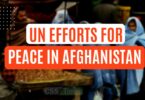
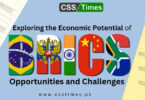
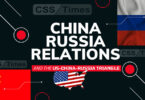
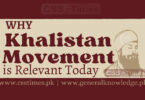
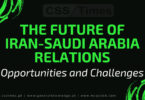
[…] Read Also: Diplomacy in International Relation | CSS International Relations Notes […]